Intermittent Fasting can be a great way to lose weight as part of a healthy lifestyle. However, some potential Intermittent Fasting mistakes can lead to unwanted weight gain. If you're wondering why you're not losing weight with Intermittent Fasting, this post is for you.
If you’ve been following me for a while, you’ll know that I follow an Intermittent Fasting (also called IF) lifestyle. It has been a key component for why I feel so amazing and healthy at this point in my life.
In This Post You'll Find:
- Why Am I Gaining Weight With Intermittent Fasting Video
- What Are The Benefits Of Intermittent Fasting?
- How Much Weight Can You Lose In A Month With Intermittent Fasting?
- Why Am I Not Losing Weight With Intermittent Fasting
- How To Fix Weight Gain While Intermittent Fasting
- More Posts On Intermittent Fasting
- Reviews
Why Am I Gaining Weight With Intermittent Fasting Video
BUT it wasn’t always that way. I struggled with my weight for many years (see my story here) and didn’t feel good about myself at all. I struggled at times with Intermittent Fasting, wondering why I was gaining weight when it seemed I was doing everything I was supposed to do.
If you're wondering the same thing, you are not alone. I get asked this question a lot, and I can help from my own personal experience as well as what the research recommends.
In general, people tend to think that they only need to fast to lose weight, but fasting is more about the timing and not about the actual caloric volume or the quality of your food.
We’re going to look at that now and let you know where things may be going wrong. I’ll also give you the info you need to succeed.

What Are The Benefits Of Intermittent Fasting?
I go into more detail in my post Does Intermittent Fasting Work for Weight Loss: A Beginner’s Guide to Intermittent Fasting, but here is a brief rundown:
- Improved brain functioning
- Reduces bad cholesterol and increases good cholesterol
- Weight loss
- Increased metabolism
- Improved digestive health
- Decreased inflammation
- Increased muscle mass and promotes fat loss
- Decreased insulin resistance
How Much Weight Can You Lose In A Month With Intermittent Fasting?
A lot depends on your body and how it reacts to the fasting. Some people can lose 10 pounds in a month, whereas others will lose an average of a pound or two a week. My recommendation is to strive for 1-2 pounds per week of weight loss, as that is a healthy, sustainable weight loss goal.
Several studies have proven that IF helps you lose weight. One, in particular, concluded that IF participants lost between 4.6% and 13.0% of their baseline body weight over 8 weeks to 1 year. For sure, those who exercised (see my post on the best time to exercise here) saw increased results over those who did not.
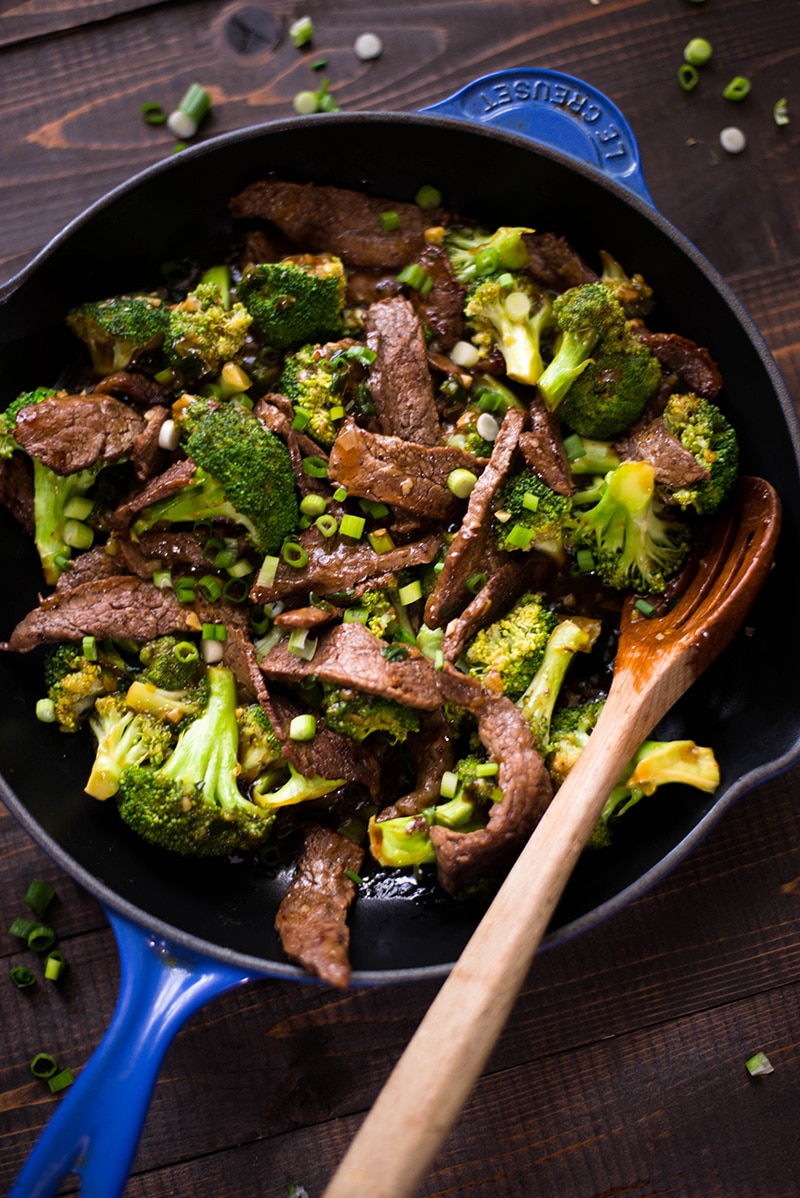
Why Am I Not Losing Weight With Intermittent Fasting
Let's dive into why you are likely not losing weight with Intermittent Fasting. I've broken it down in to 4 main reasons, which I've listed below.
#1 Eating Too Much During Your Fasting Window
Paying attention to what you eat is just as important, or even more so, than when you eat. You see, if you eat a lot of carbs and high-calorie foods full of sugar, you will, no doubt, gain weight. You’ve got to eat what your body needs in calories.
If you're not sure what your body needs, check out my post on how to calculate your macros.
#2 Not Eating Enough During Your Fasting Window
This may come as a surprise, but not eating enough can cause also issues. If you don’t eat enough in your eating window, you increase the chances of binge eating in your next window due to sheer starvation. You’ll be so hungry, you may start eating and not stop.
Plus the body stores energy to protect itself in the form of stored fat. Your body will sense the need to stock up on reserves and may store those extra pounds as fat instead of lean muscle. So again, calculate your macros to see the number of calories your body needs (it’s not that complicated to figure out your macros, trust me) and you’ll still nourish your body while losing weight.
If you are struggling with not eating during the fasting period and then bingeing during your eating window, try reducing the fasting period from 16 hours to 14 or even 12. Once you get things under control, you can gradually expand the fasting period until you are back at 16 hours. The main thing is to eat healthily when you do eat, and to eat enough to nourish your body.
#3 Not Eating Enough Protein
Whether it’s vegan protein, protein powders, or animal sources like lean meat, fish, and chicken, protein is an essential building block. Protein is important for muscle mass and recovery after you exercise. It’s good for bone health, too.
Protein fills you up as well, helping you make it from the fasting window to the eating window. So rather than filling up on carbs and refined sugar, go for delicious lean protein! It'll take longer for you to digest, keeping you feeling full long into your fasting window.
#4 Eating Unhealthy And Overly Processed Food
As I've mentioned earlier, eating unhealthy foods during your eating window will not help you to lose weight with fasting. In fact, it will make it much harder.
I recommend eating a clean-eating diet, whether or not you're on an intermittent fasting regimen. Remember, clean eating is not restrictive. You can still have tons of amazing foods—and even dessert!
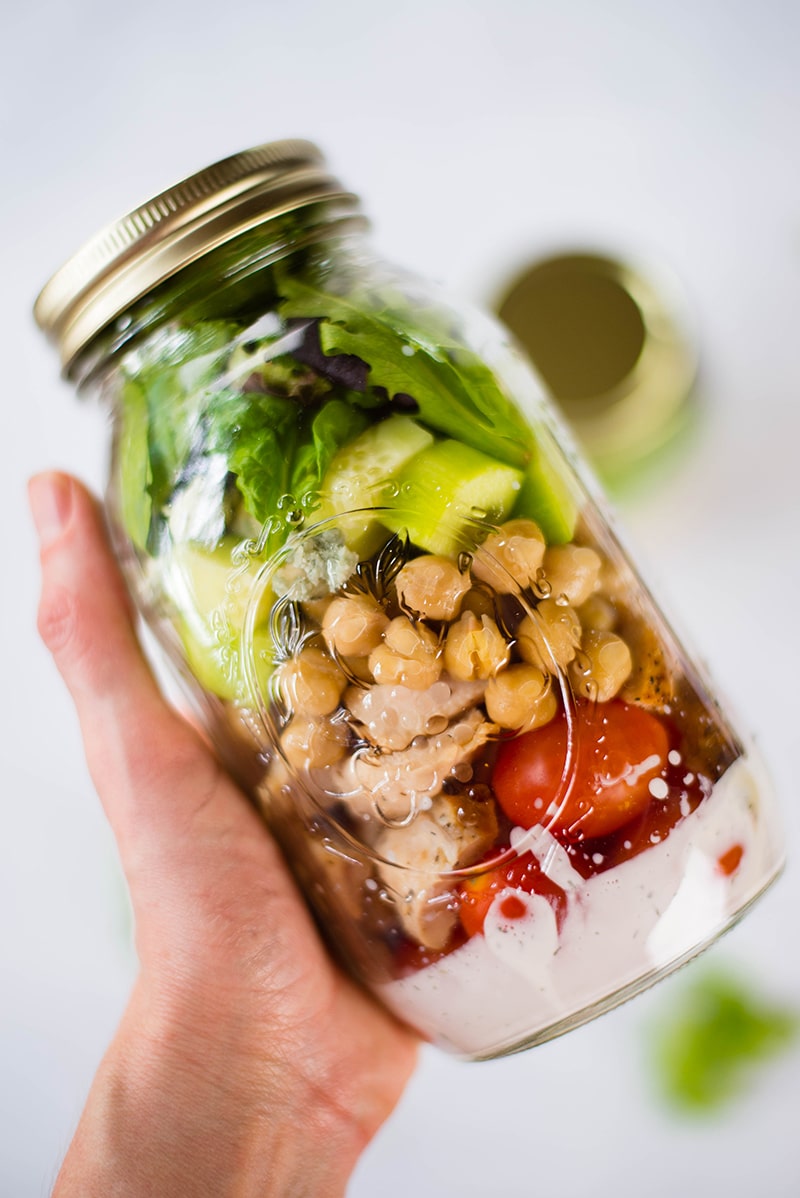
How To Fix Weight Gain While Intermittent Fasting
- Avoid Inflammatory Foods: Make sure to focus on eating healthy unprocessed foods this will reduce your inflammation and keep your weight down.
- Avoid Overeating: You'll still need to eat at a calorie deficit while fasting if your goal is to lose weight.
- Avoid Breaking Your Fast: Avoid breaking your fast on accident. More on that here.
More Posts On Intermittent Fasting
I've done all the work and research so you don't have to. Check my other posts on Intermittent Fasting to help increase your chance of success along your journey!
- Does Intermittent Fasting Work For Weight Loss? Beginner's Guide To Intermittent Fasting
- 9 Intermittent Fasting Mistakes Beginners Make (And How To Avoid Them!)
- Intermittent Fasting For Women: A Complete Guide
- Do Vitamins Break Your Fast? AVOID These 6 Supplements That Are Breaking Your Fast

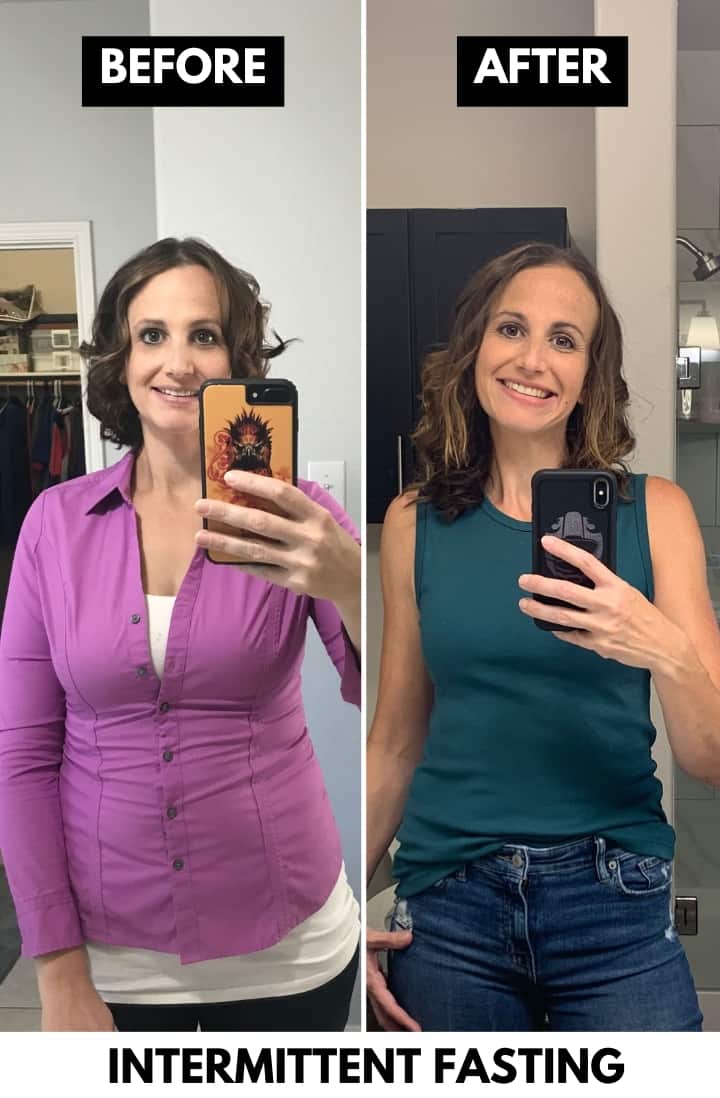

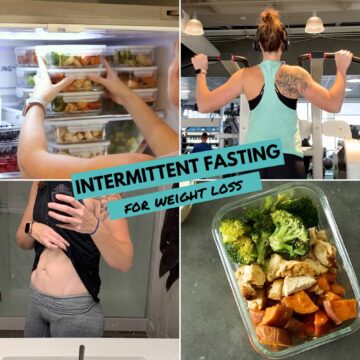
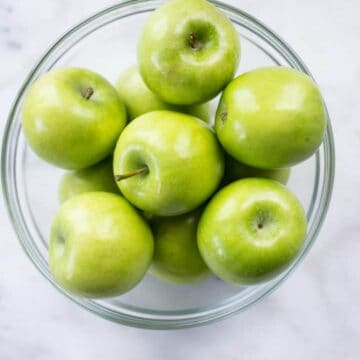
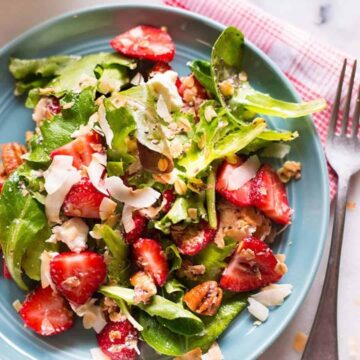


Cynthia
Hey, I just started 8am-6pm. I only lost 2lbs. It goes up & down. I fast, exercise & use a calorie count. It’s only been about 10 days. I try to drink 30 oz of water daily. Is it too soon to see any results?
Lacey Baier
10 days is pretty quick, and your body will look for consistency over time. It's good to keep track, but try to be patient, as hard as it sounds.
Daniel
If your body is still using sugar/glucose as primary source you will not losse significant weight. Yes you will loose some but when you hit the plateau you have to go one step further and reduce carb intake. I've lost 8 kg just by IF in 2 months. The hit a plateau for about 2 weeks. I then switched to a low carb/keto style combined with IF 20/4 and lost an extra 6 kg in aprx 2 weeks. In total went from 85 to 71 kg and feeling awesome. Oh and plus, for exercise i was riding the bike running, long walks... hope this helps
Lacey Baier
I'm glad that switch worked for you!
Centa
Do you have to count calories. I’m not good at tracking. I am also older and tried 18/6 but I did not lay off the icecream and croissants! So I gained..
Jen Moderator
Hey Centa! While calorie counting is not generally required for IF, it wouldn't be a bad idea to bump up focus on calorie intake if you are noticing weight gain. Once you get into a good routine or flow, close watch on calories will no longer be necessary (most likely). I hope this helps! - Jen
Lacey Baier
No, you do not need to count calories, but tracking macros can be extremely helpful to stay on track and ensure you're eating what your body needs.
Joe
None of those apply to me. 1500 calories a day. 20 hour fasting window, water only while fasting. Eating clean. Up 6lbs in a week.
Lacey Baier
Ok, that definitely sounds tricky. It's possible your gut isn't happy with the 4 hour eating window and there are other issues going on, making it difficult for you to digest and partition the nutrients you're eating. Are you inflamed as well?
Courtney Henley
I released 51lbs then 54lbs in 2 years of intermittent fasting. But now 2 and a half years later, I have belly fat again and have started to gain weight! Just 6lbs, But I need to stop. I was recently diagnosed with celiac. So I think it is due to gluten-free products being so highly processed. Or it could be I am eating too little as sometimes I get too busy to eat all day and then have one meal late. Gotta get my groove back because I love how I felt skinnier and just this extra 6lbs looks terrible. Plus, I wanted to go down 10 more!
Lacey Baier
It sounds like you know what to do - it's just a matter of making the change. I'd definitely look for GF options that are clean.
Selda
I started IF about a week ago and I am so hungry with headaches it's making it hard to continue. Ive been on keto for about 6wks. Any advice is so much appreciated.
I'm just so hungry
Dee
Don't give up! Start your day with a big glass of water, then your black coffee or tea. Keep drinking that water! Your body is reacting to less food-based hydration. You may even experience some constipation. I'm in week 7 of a 16:8 IF and, trust me, it's worth it!
Lacey Baier
Ugh, I'm so sorry you're struggling. I would go at it much slower than normal, given your situation. Make sure you're hydrated, and drink more water than you might think!
Gabi
Hello everyone. I have always had problems with being overweight. I've tried so many methods before. It was better and worse.
Lacey Baier
I wish you the best, and hope you find a method that works for you.
Jummy
I just started intermittent fasting like ten days ago and I noticed my face has started reducing,but I feel my other body are not slimming down ,an scared cos it feels like am really not doing it right,I am on a 20:4 diet,and I only take tea and water,but I eat protein and am not sure if am eating a lot of carbs,please I need to see result,am being body shamed,I take ice cream, sometimes cake during my free window or biscuit,but I reduced the portion,am I on track.
Nazim
Stick to what you are doing and eat clean. 10 days is too soon to see overall results.It will take time. Give it at least a couple of weeks.
Bena
It’s pretty normal Jimmy and keep doing it and you’ll see the result in the next couple weeks. When your fat is burned, the empty place will be replaced with water (it’s just how our cells work) and water is heavier than fat, so you might even see the weight gained in the first 3 weeks. But keep the IF and after your body adapts to the new lifestyle, water will be released and you’ll start seeing the weight loss. Many people said it took them 3-12 weeks to see the result but once you see it, your weight will go down nonstop if you keep eating the right time and the right food.
Rahul Madaan
Hi Jimmy,
I think the reason is 20:4 IF instead of 16:8 IF. I have been following IF for last 5+ months with 16:8 IF. However, recently I came across a video on YouTube which recommended 20:4 IF for those who are older than 40 years. So I started 20:4 just 5 days back and as a result my body reacted very bad. First, I faced constipation ( I make sure that I take sufficient carbs during me eating window) and today I noticed that instead of weight reduction, I gained 1kg in just 5 days and my fat% also increase at the same level it was 2 months back. Since then I have been visiting websites, blogs to check the reason and in my view 20:4 IF is completely wrong to your body.
Courtney Henley
Stick to it. I dropped 51lbs in a year and maintained it for another year. It is slow at first then starts to drop off. Up your fiber and water intake, And I drank black coffee with MCT oil and stevia if I got too crazy hungry at night. You can also try a low sodium instant miso soup or veggie broth.
Lacey Baier
It sounds like you need to work on cleaning up your diet to make sure you're not eating inflammatory foods that are working against you. I recommend you read my articles on clean eating and calculating your macros.
Jhosue
Hey can IF work with Caloric deficit at the same time aswell or it would be to low as you said and would not burn fat?
Rae Hudson
I was looking up the same thing when I found this forum. The write up mentioned sticking with low-carb foods. If you do this, the body will not be able to store much as fat because the carbs are so low. Think "Keto" but modified. I aim for 35% protein. I get close to my budget some days but because I take in so much protein, I am unable to eat the max amount. Also, my window is smaller than 8 hours so I do not get hungry enough for a 2nd meal before my window ends. To sum up: Focus your meals on protein and healthy fats (olive oil, salmon) and strict on low carbs ( no more than 20-30%). Keep in mind, every body is different so try it and see what happens.
Lacey Baier
A caloric deficit and not eating enough are not the same thing. You'll want to calculate your macros to understand what your body needs, and not just undereat, if that makes sense.
Barbara
Hi I do intermittent fasting working nights..I stop eating by 6-7pm and don't eat until my shift is over at 9am. Usually around 10am. What is best to eat when you combine IF with trying to sleep after being up all night and not gain weight? Soup? Cooked veggies? Protein? Need help, please.
Lacey Baier
As long as you're following a clean eating diet and eating within your calorie amount, you should be fine, no matter when you're choosing to eat 🙂